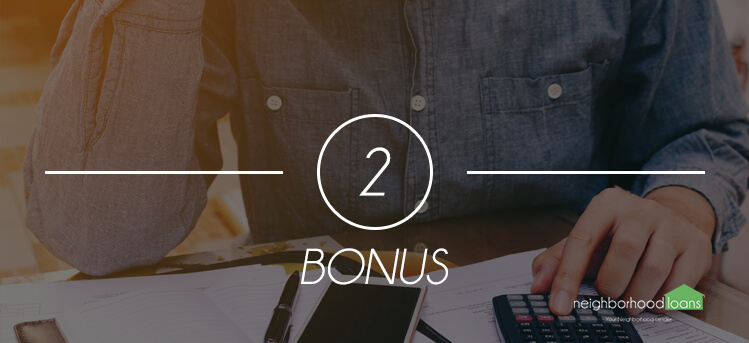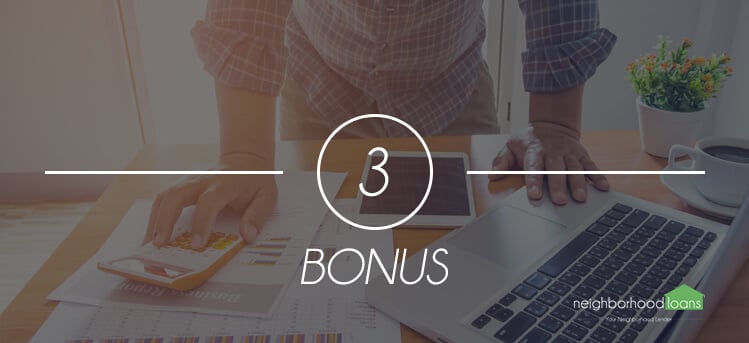Things NOT To Do When Buying a Home

It’s that time of year again, people are on the lookout for the best deals in the housing market. Eyeing which neighborhoods are the safest and most affordable. Imagining what life would be like waking up in your dream home with big windows and a gorgeous front yard.
Searching for homes is easily the best part of the mortgage process. However, there are several “no-no’s” you must not overlook when finding your perfect home.
Not only do people make the mistake of choosing the wrong shade of grey on the wall, but they also find themselves in a financial mess for several reasons.
Don’t become another sob story and make mistakes that can cost you your future home.
Here are the top 10 “no-no’s” of the mortgage process:
1) DO NOT change jobs, become self-employed, or quit your job

Changing jobs while buying your home can make budgeting and getting your loan approved a difficult process.
Your loan approval could be jeopardized if you list a different company as your employer. In addition, changing jobs means a different income.
You won’t have a firm grasp on your financials during each month and it will be difficult to budget; therefore, it will be tricky to plan and anticipate your mortgage expenses.
2) DO NOT use credit cards excessively or let current accounts fall behind

This may be a “duh” or no brainer statement, but many people tend to overlook the fact buying a home is the biggest purchase they will make.
Before closing, do not spend an additional amount of money on anything unnecessary. Make sure all bills are current and not delinquent. Although the loan may only be listed under one account, the bank looks at all accounts. If you need help improving your credit score, make sure to read this guide.
3) DO NOT omit debt or liabilities from your loan application

You may think by not listing any other financial debt or liabilities will help your loan application, but you are WRONG!
Don’t be sneaky and try to slide that information through the cracks. Your lender will know your financial situation as well as you do. This is also considered a form of mortgage fraud. If you try to falsify information, you will end up getting denied for the funding you want. Fill out your loan application honestly and your mortgage lender will be able to assist you in the best way possible.
4) DO NOT originate any inquiries into your credit

Too many inquiries can negatively affect your credit score. A lower credit score means a smaller loan. You don’t want to damage your chances of obtaining a better loan by having too many inquiries. Balance and keep your account clean.
5) DO NOT change bank accounts

Your Loan officer, realtor, bank, and lawyer are familiar with your account and history. Don’t complicate things by switching banks.
This will create lots of unnecessary paperwork and confuse all parties involved. The transferring of funds may take longer than anticipated and could interfere with your closing date.
Wait until you have moved in to switch banks.
6) DO NOT buy an automobile

Buying any type of vehicle is usually a pricey purchase and sometimes requires taking out a loan. DO NOT take out another large loan to finance a car. Taking out another loan can jeopardize your mortgage approval. If you take out another loan while your mortgage loan is in process, your mortgage loan can change drastically. So, don’t harm yourself by trying to treat yourself to a new set of wheels.
7) DO NOT spend money you have set aside for closing

Closing is one of the most important parts of the mortgage process. Don’t even think about touching the money set aside for something else. You may think “but this purchase is for the home!” Well, what happens if that money used ends up making you lose your home? Don’t test your luck and keep that money locked and stored away for closing day.
8) DO NOT buy furniture

This will probably be the trickiest for people not to do. Furnishing and decorating your home is an exciting time. However, buying furniture is an expensive investment.
This could result in taking out another loan and adding monthly payments to your already crowded budget.
Additionally, this purchase could harm your credit if you are unable to make a payment, which will affect your mortgage loan. It’s advised to stick with your current furniture and wait an appropriate amount of time before shopping for new furniture.
9) DO NOT make large deposits without checking with your loan office

Many large deposits require proof of source. Depositing a large amount of money can look like a cash advance or a loan, which would need to be included in your debt ratio. If this information is not in your application while it can jeopardize the amount you receive.
10) DO NOT co-sign a loan for anyone

Knock on wood nothing jeopardizes your mortgage loan. But, if something were to happen, you don’t want to be relied on for someone else’s loan approval. This loan is technically considered your responsibility too and you can be sued by the lender if payments aren’t made. With that being said, don’t sign any documents that don’t relate to your loan and wait until your process is over. It’s better to be safe than sorry.
When buying a home, you need to be at the top of your game. You don’t want to agree to anything that won’t benefit you in the long run. Be sure to ask the right questions, do your research, and don’t make any mistakes that can be avoided.
That’s why we’re providing you three bonus tips for what not to do when buying a home.
Here are 3 BONUS tips of what not to do:
1) DO NOT find a home before getting pre-approved

Finding the home of your dreams before knowing how much the lender is willing to give can result in disappointment for both parties. We might be able to find a way to make it work, but we can’t guarantee anything. Save yourself the heartache and get pre-approved before looking at homes.
2) DO NOT forget about other expenses

Some people just look at the price on the sign, negotiate their way down and sign papers thinking they’ve finally done it. But, did they consider other expenses that come with the home aside from the final price? You don’t want to forget about the following financial obligations of owning a home:
- a. Association
- b. Property taxes
- c. Utilities/electricity/water
- d. Garbage/recycling fees
- e. Home maintenance
- i. Landscaping
- ii. Interior cleaning
- iii. Repairs
- iv. Installations
- f. Insurance
- g. Permits
Owning and maintaining a home is a huge responsibility. Make sure to be aware of all the financial aspects of your home before finalizing any deal.
3) DO NOT take out a loan you can’t handle

Ideally, you want to take out a mortgage loan that helps lower the cost of monthly payments. But, what if in the long run it turns out you can’t keep up with payments?
This could start the beginning of going into debt. Not to mention, other financial responsibilities you have aside from home maintenance, such as bills, auto or student loans, memberships, groceries, or other life necessities. Listen to your financial advisor or loan officer and they can help you determine which loan will best fit your financial situation.
With these helpful tips, there’s no way you can make a mistake when buying a home. Remember to have fun and be smart with your choices as they will impact your future financials.
